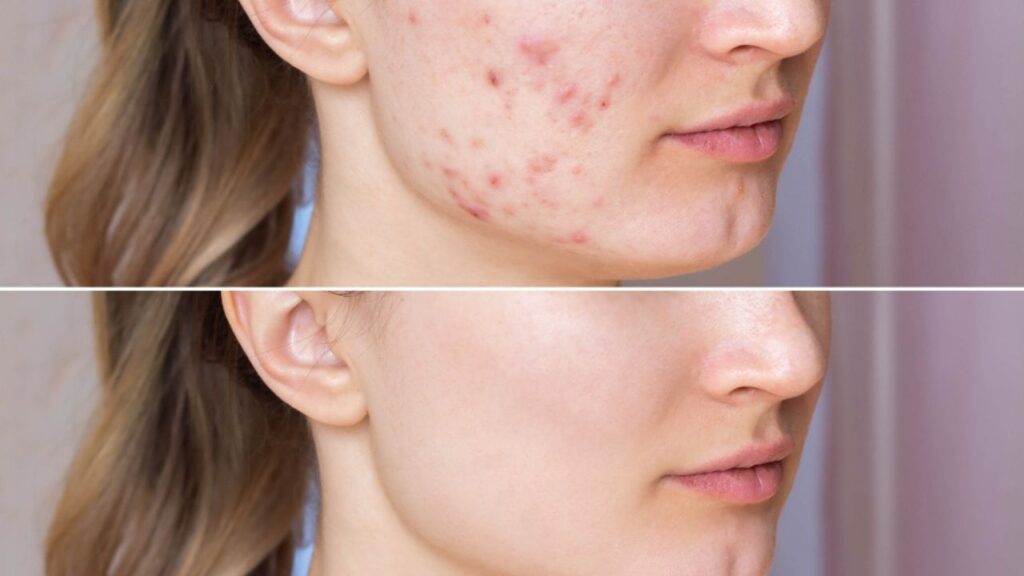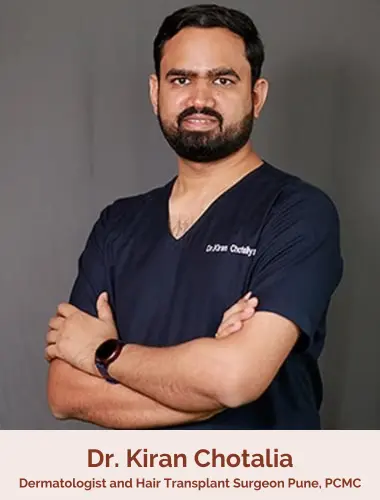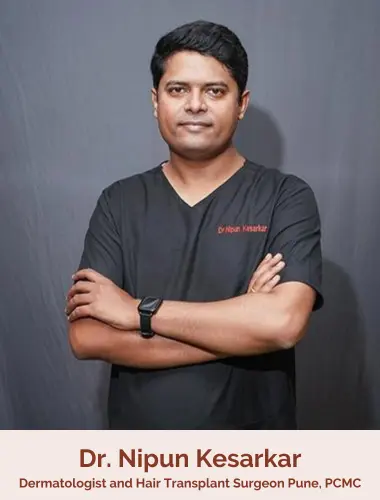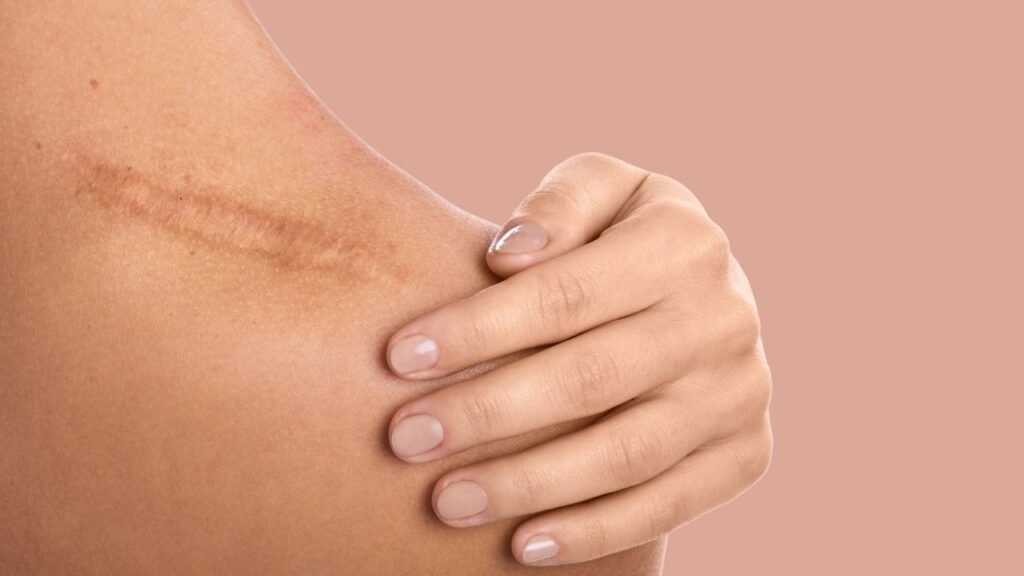How to Prevent Pimples on Face Forever?

Table of Contents
Pimples are a common occurrence for everyone at some point. Hormones, stress, heredity, and nutrition are just a few of the possible triggers for pimples.
Pimples can be irritating when they come back again and again. At their worst, they may leave scars that last a lifetime, resulting in anxiety or melancholy.
Whatever method you choose to keep pimples at bay, remember that persistence and patience are the keys to success. While a single pimple may be reduced overnight with a dab of benzoyl peroxide, most treatments take several weeks to show any improvement.
What are Pimples?
Many individuals suffer from a skin disease known as acne/acne vulgaris, which is characterized by pimples. Pimples are skin inflammations caused by bacterial infection of the sebaceous glands (oil glands), swelling, and pus filling.
The oil glands’ overproduction of sebum is the root of the issue. Face, neck, back, and shoulders are the most common places for pimples to appear. Even if they aren’t life-threatening, they may make you feel self-conscious about your looks.
Call Our Specialist
How to prevent pimples on the face forever?
Pimples occur when the oil glands in your skin become hyperactive, resulting in clogged pores. It may get worse if they get infected with certain kinds of skin germs. The face is the most common site for pimples to develop, although they may appear elsewhere on the body’s surface.
Acne can’t be prevented because of the androgen hormones that often cause it, as well as heredity. But there are many ways to lessen their impact and keep them under control. Here are a few examples:
1. Wash your face properly
Excess oil, grime, and perspiration should be removed from the face regularly to help avoid pimples. Try to wash your face twice a day to keep it clean.
Avoid using abrasive cleansers on your face since they may cause irritation and dry up your skin. Use a cleansers without alcohol to get rid of the odor.
To wash your face:
- Use warm (not hot) water on your face.
- Use your fingers instead of a washcloth to gently apply a light cleaner in a circular motion.
- Pat dry after thoroughly rinsing.
2. Moisturize skin
Moisturizers aid in the maintenance of moisturized skin. However, most moisturizers include oil, synthetic scent, or other chemicals that may irritate the skin and lead to breakouts.
After washing your face or whenever your skin feels dry, apply fragrance-free, non comedogenic moisturizers to help prevent pimples.
3.Use over-the-counter Acne Treatments
Acne remedies available over-the-counter (OTC) may help clear up breakouts quickly or prevent them from occurring in the first place. Benzoyl peroxide, salicylic acid, or sulfur are the most common ingredients.
Spot-treat acne using an over-the-counter (OTC) remedy. You may also use it to keep breakouts under control regularly. Follow the manufacturer’s use directions to avoid adverse effects like redness, irritation, and drying.
4. Stay Hydrated
Dehydration results in excess oil production in the skin. Besides making your skin seem dull, dehydration also causes irritation, which is why it’s important to drink enough water to avoid it.
Drink at least eight 8-ounce glasses of water each day to stay hydrated. If you’re pregnant or nursing, or if you spend time in a hot, humid area, drink extra water after you exercise.
5. Limit Sun Exposure
The short-term benefits of catching some rays are outweighed by the long-term risks. Frequent sun exposure causes the skin to become dehydrated, which leads to an increase in oil production and clogged pores over time.
Sunscreen is critical in the fight against skin cancer. Many sunscreens, on the other hand, are greasy. Wear a non-comedogenic, oil-free sunscreen to keep your skin protected from the sun and pimples.
What to eat to improve your pimples?
Here are some foods that may help you get rid of your pimples faster and more effectively:
1. Fruits and Vegetables
There are no real surprises in store for you right now. Acne is more common among individuals who don’t consume a lot of fruits and vegetables, according to a major study.
This result is most likely due to the high amount of fiber included in fruits and vegetables. Fiber not only helps to lower acne-causing hormone levels but also provides food for your beneficial gut flora. Healthy gut bacteria are important for skin health because they assist in protecting the skin surface.
You should consume the entire fruit or vegetable, not just the juice, as fiber is essential. Drinking a lot of fruit juice may make your acne worse.
2. Whole grain
Whole grains like brown rice, oats have a low glycemic index, which helps with acne (GI). To put it another way, they don’t cause an increase in blood sugar.
Regular readers will be aware that clean skin is dependent on a healthy blood sugar level. That’s because excess consumption of processed carbs raises your blood sugar which sets off a chain reaction of hormones that makes your face oilier and more prone to acne.
Men with acne were given a low-GI diet in one trial. They consumed a lot of complex carbs like pulses, legumes, and vegetables with a lot of whole grains. Ten weeks later, they had less acne, and their skins were significantly less oily in general. Even their pores seemed to have shrunk!
3. Fish
It’s also been shown that eating little or no fish increases your chances of getting acne. Eating more fish may help ease acne if you already have it.
It may be due to the anti-inflammatory lipids present in fish, but it’s also possible that fish contains skin-supporting minerals like zinc, iodine, and vitamin D.
4. Probiotic-rich foods
Probiotics and diets high in probiotics are relatively new research areas, yet they hold a lot of promise. In a 12-week trial, those who drank fermented milk had less acne. While the idea of fermented milk seems revolting, it’s simply another term for the wildly popular fermented milk drink known as kefir.
According to some studies, eating probiotics may enhance the function of your skin’s barrier. Therefore, until a great acne-fighting probiotic strain is discovered, it’s best to consume a variety of good bacteria. To accomplish this, you may take probiotic supplements or eat foods naturally rich in probiotics, including cultured or fermented foods.
Conclusion
Many of the techniques for preventing pimples may also be used to cure them. Eating well, avoiding stress, and not popping pimples may help manage zits and reduce their length.
If your acne continues despite your best efforts, you may need prescription acne treatment. Consult your dermatologist if you’re uncertain about treatment.
Recent Posts
Our Expert Doctors












